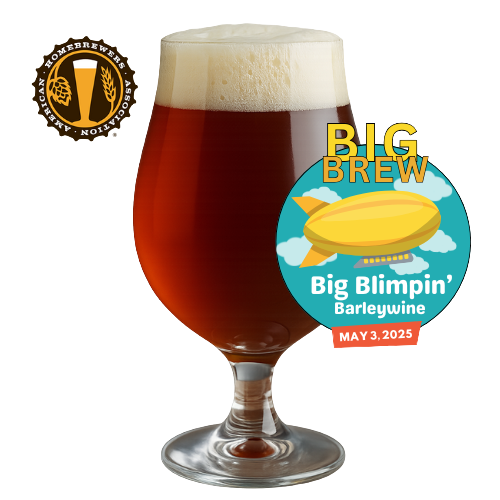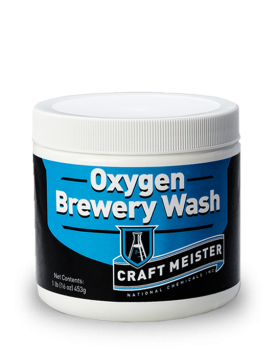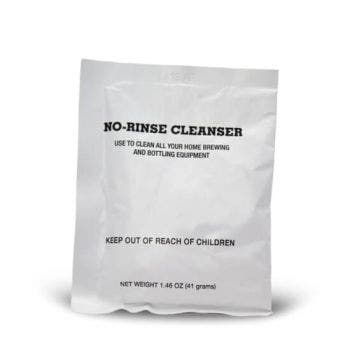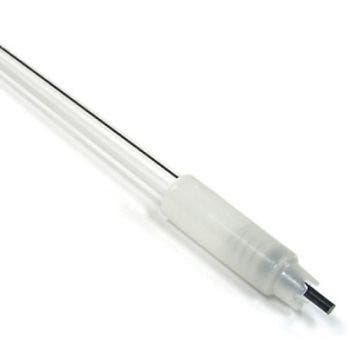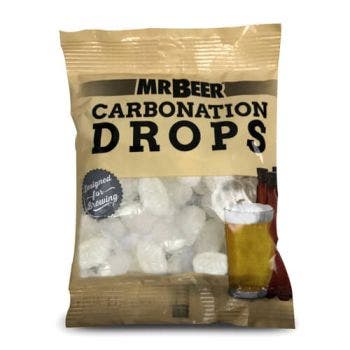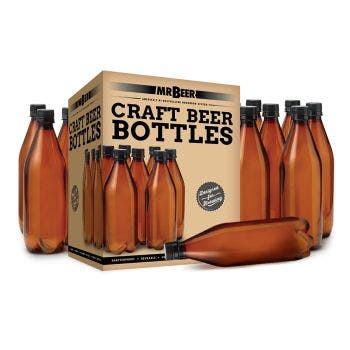Big Blimpin' Barleywine - Limited Edition Big Brew Recipe Kit
Brew big. Dream bigger.
Big Blimpin' is a bold, boozy American Barleywine crafted for Big Brew Day. Bursting with rich malt character, balanced bitterness, and a heavy hit of hops, this high-gravity recipe kit is perfect for homebrewers ready to push their brewing skills to the next level. Brew it now, age it later — this monster only gets better with time.
Kit Features:
-
Bold American Barleywine style — 11.1% ABV
-
Complex malt body with smooth caramel depth
-
Heavy late hop additions for a bright, floral finish
-
Includes premium ingredients: specialty grains, booster, American ale yeast, and dry hops
-
Designed for easy brewing at home — Level 5 Advanced Recipe
-
Ideal for aging: flavor improves over 6-12 months
What's Included:
- 2 × Golden Ale Craft Series Refills (provides the malt base)
- 1 × Carapils Malt (for dextrine and body)
- 1 × Crystal 40L Malt (for caramel sweetness and color)
- 1 × Booster Pack (for gravity boost)
- 2 × 1oz Cascade Pellet Hops (one for whirlpool, one for dry hop)
- 2 × 1oz Centennial Pellet Hops (one for whirlpool, one for dry hop)
- 2 × 1oz Northern Brewer Pellet Hops (one for whirlpool, one for dry hop)
- 1 × US-05 American Ale Dry Yeast
- 2 x hop Sack
- 1 × Packet No-Rinse Cleanser (for sanitizing)
Recipe Profile:
- Style: American Barleywine
- ABV (Alcohol By Volume): ~11.1%
- IBU (Bitterness): ~100
- SRM (Color): ~9.5 (Light Amber)
- Difficulty Level: Advanced (Level 5)
- Batch Size: 2 Gallons (Approx.)
You Will Need:
- Mr. Beer fermenter or similar small-batch fermenter
- Bottling sugar, carbonation drops, or priming solution (sold separately)
- 11 bottles (740mL plastic PET or glass bottles) and caps
- Basic brewing utensils (measuring cup, whisk, thermometer, muslin grain bag)
Note: This is an advanced Level 5 brewing recipe designed for experienced brewers or adventurous beginners ready to level up their skills. Proper temperature control and patience are key to brewing a truly legendary Big Blimpin'!
STEP 1: SANITIZING
Cleaning is one of the most important steps in brewing. It kills microscopic bacteria, wild yeast, and molds that may cause off-flavors in your beer. Make certain to clean all equipment that comes in contact with your beer by following the directions below:
- Fill the clean keg with warm water to line mark 1 on the back, then add ½ pack (about 1 tablespoon) of No-Rinse Cleanser and stir until dissolved. Save the remaining ½ packet for bottling later.
- Screw on the lid and swirl the keg so that the cleaning solution makes contact with the entire interior of the keg, including the underside of the lid. Allow it to sit for at least 2 minutes, then swirl again.
- To clean the spigot, open it fully and allow the liquid to flow for 5 seconds, then close.
- Pour the rest of the solution into a large bowl. Place your spoon, whisk, measuring cup, and scissors into the bowl to keep them sanitized throughout brewing. Leave them immersed for at least 2 minutes prior to using.
- After all surfaces have been thoroughly cleaned, do not rinse or dry the keg or utensils. Return the lid to the top of the keg and proceed immediately to brewing.
STEP 2: BREWING
Brewing beer is the process of combining malt extracts, specialty grains, hops, and yeast. Once combined, the yeast eats the sugars in the malt, producing alcohol and carbon dioxide (CO2). This process is called fermentation.
- Remove the yeast packet from under the lid of the Golden Ale Refills and place the unopened cans in hot tap water to soften.
- Place the Carapils Malt and Crystal 40L Malt into a muslin grain bag. Tie the sack closed and trim any excess material.
- Heat 4 cups of water to 155°F (68°C) in a clean pot. Steep the grain-filled bag for 30 minutes, maintaining 150-155°F. Remove the sack and discard grains without squeezing.
- Turn off the heat. Stir in the Booster Pack until fully dissolved.
- Bring the liquid to a gentle boil for 2–3 minutes, then remove from heat.
- Place 1 oz each of Cascade, Centennial, and Northern Brewer hops into a sanitized hop sack. Add the sack to the hot wort and steep (whirlpool) for 30 minutes.
- Stir in both cans of Golden Ale Extract until fully dissolved.
- Fill your sanitized fermenter with cold water up to line 1 (about 1 gallon).
- Carefully pour the wort into the fermenter, then top off with more cold water to line 2 (about 2 gallons total).
- Sprinkle the packet of US-05 yeast over the surface of the wort. Do not stir.
- Screw on the fermenter lid and place it in a location with a consistent temperature of 64–68°F (18–20°C), out of direct sunlight. Allow the beer to ferment for 21 days.
STEP 3: DRY HOPPING & BOTTLING
- After 21 days, carefully open your fermenter and add the remaining 1 oz each of Cascade, Centennial, and Northern Brewer hops directly into the beer (no hop sack needed).
- Reseal the fermenter and allow the hops to steep for 3–4 days.
- After dry hopping, taste a small sample to determine if the beer is fully fermented. If it tastes like flat beer (no sweetness), it is ready to bottle. If it’s sweet, allow 3 more days and taste again.
- When ready, fill a 1-gallon container with warm water and add the remaining ½ pack of No-Rinse Cleanser. Stir until dissolved.
- Distribute the cleaning solution among the bottles. Cap and shake vigorously. Let sit for 10 minutes, then shake again. Remove caps and empty the bottles. Do not rinse.
- Add priming sugar to each bottle based on size (e.g., 1 teaspoon per 740mL bottle) or according to your priming method.
- Holding the bottle at an angle, fill each bottle to about 2 inches from the top.
- Place caps on bottles, hand tighten, and gently turn the bottle over to check for leaks.
- Store the bottles upright at 70–76°F (21–24°C) for at least 14 days to carbonate. If your room temperature is cooler, allow up to 21 days for full carbonation.
TIP FROM OUR BREWMASTERS
After primary carbonation, chill one bottle in the fridge for 48 hours. Taste it! If it’s fully carbonated and delicious, chill the rest. If it needs more time, allow the bottles to sit at room temperature for another week and test again. Barleywines improve significantly with age — patience will reward you with an even bigger, smoother brew.

